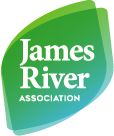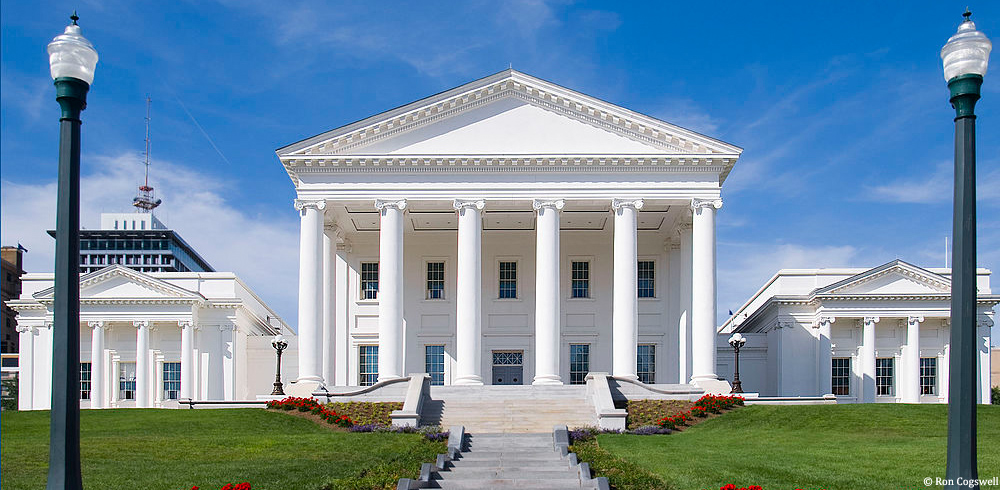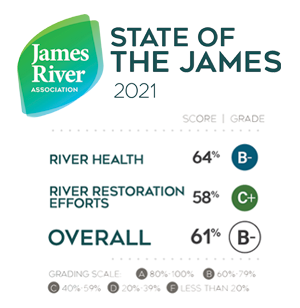Essential Actions for Our Most Essential Resource
According to the 2021 State of the James report, our river’s overall score remained at a grade of B-minus but fell one point to a 61%. The James River is still recovering from record rainfall in 2018, a concerning sign that the heavier and more frequent rainfall in our future will increasingly impact the overall health of the James River. Fortunately, Virginia’s Chesapeake Bay cleanup plan includes practices that will increase the resiliency of our waterways, but we must fund the work and act with urgency to meet the 2025 deadline.
Across the Commonwealth and across the aisle, Virginians value clean water. The James supports thriving industries, from family farms and working forests to local tourism and outdoor recreation businesses, and it delivers clean drinking water to 2.7 million Virginians. To restore this treasured natural resource, we urge our state leaders to support our 2022 James River Agenda.
Clean Water and Conservation Funding
The proposed 2023-2024 Budget includes historic levels of funding that will be transformative for Virginia’s natural resources, including its rivers and streams. By passing a budget with these resources, the General Assembly can deliver on long-standing, bipartisan goals for cleaner water and healthy natural landscapes.
- $290,000 for an American shad recovery plan, an iconic fish species on the brink of collapse in the James River.
- Full funding for the Virginia Agricultural Cost-Share Program to help farmers protect their local streams through conservation practices.
- $100 million for the Stormwater Local Assistance Fund to help communities reduce runoff pollution and prevent flooding.
- $165 million to stop combined sewer overflows from sending untreated sewage into our waterways.
- Full funding for multi-use trails and land conservation, including farmland, battlefields, BIPOC and tribal land preservation.
- Full funding for trees, including $6 million for urban tree canopy, $4 million for the Trees for Clean Water Program, and $2.89 million to restore the New Kent nursery.
Protection Against Toxic Chemical Spills
There are thousands of above-ground chemical storage tanks across the Commonwealth, but little is known about their location, contents, or condition. These tanks, which are not regulated for safety or regularly inspected, contain hazardous substances that if released because of a leak or a storm could harm local communities and the environment. Better information through registration can help communities and emergency planners prepare for and act quickly in the event of a disaster.
- Pass legislation requiring registration and reporting of above-ground storage tanks, their contents, and their condition.
- Testing for and Finding Sources of Toxic PFAS Chemicals in our Drinking Water
In 2020, the General Assembly created a workgroup to test for per- and polyfluoroalkyl substances, or PFAS, in Virginia’s drinking. Exposure to PFAS has been linked to harmful health impacts, including cancer, preeclampsia, high cholesterol and reduced antibody response to vaccines. The first phase of drinking water testing found multiple locations of PFAS contamination, particularly in Northern Virginia, Hampton Roads, and Roanoke. In October, DEQ announced the first documented finding of surface water contamination in Virginia at a level 30 to 40 times higher than the EPA’s health advisory level. Our health and environmental agencies must continue to look for and address possible contamination, in our drinking water and at its source.
- Pass legislation to continue testing Virginia’s public drinking water for PFAS contamination.
- Fund ambient water surveillance near potential PFAS “hotspots” across the Commonwealth.
Improving Virginia’s Resilience to a Changing Climate
Our 2021 State of James report shows that climate change will increasingly impact the health of our waterways and the communities that rely on them to thrive. Virginia has taken much-needed action to address the impacts that climate change is already having on our Commonwealth. This includes joining the Regional Greenhouse Gas Initiative, using it to fund the Community Flood Preparedness Fund, and drafting our first Coastal Resiliency Master Plan. We have also prioritized the protection of our wetlands and the use of living shorelines to address the threats of rising sea levels. We cannot ignore the real impacts that hotter temperatures and wetter weather are having and will continue to have here in Virginia.
- Codify the Coastal Resilience Master Plan and expand it to protect communities throughout the Commonwealth.
- Reject efforts to rollback Virginia’s climate initiatives that will make us more vulnerable to higher temperatures and flooding.
The James River Association strives to provide a voice for the River on important policy issues. Through advocacy at the citizen, local, state and federal levels, we work to ensure the health of the James River. Help strengthen the voice for the river by joining our Action Network or by joining our team of RiverRep volunteers!


